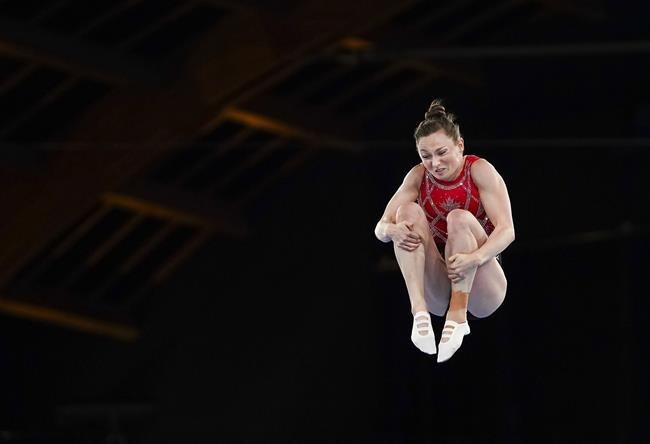Canada's top athletes are willing to repair breaches in trust with those who manage them, say their leaders, but the question is how.
In what she's called a crisis, new Canadian sports minister Pascale St-Onge said there's been reports of maltreatment, sexual abuse and misuse of funds made against at least eight national sports organizations since taking office in October and she expects more.
The minister is holding roundtable discussions over the issue and inviting athlete representatives to the table.
A unified message is needed, said Erin Willson, who is a former artistic swimmer now president of the national athlete association AthletesCan.
"There is trust that has been broken, but from what we've heard from athletes, they are willing to make those steps," she said Friday. "The big question is how we change the culture and I think there isn't one answer."
About 110 athletes participated in a virtual assembly Thursday evening.
It was moderated by Willson, and Rosannagh MacLennan and Tony Walby representing the Canadian Olympic Committee and Paralympic Committee athletes' commissions respectively.
"The call was supposed to be a starting point," said MacLennan, a two-time Olympic champion in women's trampoline. "It's by no means the only conversation that we have with athletes."
Safe sport was a bubbling issue in Canada before the recent wave of athlete unrest.
Former Canadian sport minister Kirsty Duncan made mandatory in 2019 harassment and abuse training for athletes, coaches, parents, officials, administrators, the adherence to a universal code of conduct and the establishment of an independent third-party to investigate complaints.
The COVID-19 pandemic slowed national sports organizations in their implementation. Preparing athletes to compete and overcome the pandemic challenges of 2021 Summer Games in Tokyo and 2022 Winter Games in Beijing was the priority.
"I think there is a lot of frustration from athletes just that things aren't moving as fast as they'd like," said Willson, who competed in artistic swimming for Canada in the 2012 Olympic Games.
"There's frustration that conversations start off with good intentions, but sometimes move away to some of the nitty-gritty and the financials and things like that instead of that priority of athlete safety as a number one."
Athletes want a change in a culture they believe puts medals, and money needed to win those medals, ahead of their mental health and well-being.
Do they trust the organizations that created the culture to change it?
"For the most part right now, no," said Walby, a two-time Paralympic judoka. "There's a lot of mistrust and a lot of that has come from stories in the media and from history.
"Are they going to trust the NSO to make the cultural changes or are they going to trust the NSO or Sports Canada or another body, like the minister? That is where we are coming in. That is where our voice is going to be strongest."
Said Willson: "There's this notion that athletes are out here to burn everything down. I really don't think that's the case. I think there is a willingness to work together and be on the same side."
St-Onge announced $16 million in safe-sport money in the recent federal budget and has appointed a sports integrity commissioner who will be on the job as of May 1.
While there are safe-sport mechanisms available to athletes in unhealthy training environments, preventing those environments is preferable to athletes forced to advocate for themselves on top of training and competing pressures, Willson said.
"If you are in a training environment that is abusive and is causing these mental-health challenges, then the onus is now on the athlete to seek out the help that they wouldn't need, had they been in a more positive environment," she said.
This report by The Canadian Press was first published April 22, 2022.
Donna Spencer, The Canadian Press




